Hugo! (30 page)
Authors: Bart Jones

Despite lacking the support of Chávez's MBR-200, which was
holding hard to its abstention campaign, Arias won. Two months later,
he moved into the same governor's mansion he had seized during
the February 4, 1992, coup. He was now in charge of the state that
accounted for at least half of Venezuela's economic output with its oil,
minerals, and cattle.
The Bolivarian movement spent a year debating whether Chávez
should run for president. They held local assemblies, regional assemblies,
national assemblies. Often the sessions started in the morning
and lasted into the middle of the night. While many of the Bolivarians
supported the idea, Chávez also faced resistance. Some segments
opposed the electoral route and "accused us of having abandoned the
revolution because we had discontinued the armed struggle . . . We
knew taking the electoral path was a strategic decision that could be
catastrophic, that we could walk right into the trap that the system set
for us, that it could lead us into a pit of quicksand." It was possible
Chávez would not have an adequate electoral machine in place and go
down in defeat, destroying his political aspirations.
But he wanted to take the risk. By early April 1997 he was telling
reporters the MBR-200 would probably put up a candidate — with
Chávez the obvious choice. On April 19, the anniversary of Venezuela's
declaration of independence, he and the Bolivarian movement convened
a special national congress to make a final decision. After a
meeting that started about 9 A.M. and ended about 2 A.M. the next day,
they decided to launch Chávez's candidacy. They thought too much
was at stake. Not only the
presidential race but regional and municipal
elections nationwide were to take place the same day. Not everyone supported
the decision. Some key members of the movement who opposed
the campaign resigned.
Three months later, in July, Chávez officially
registered his new
party, the Fifth Republic Movement (MVR), with the National Electoral
Council. He and his supporters had to change the name of their group
because Venezuelan law prohibited the use of Simón Bolívar's name for
political parties.
Two thousand supporters cheered Chávez outside the board's
offices that day. El Comandante was embarking on a road that would
make him famous worldwide and a force to reckon with. But the international
media hardly noticed. They made brief mention of the developments,
or ignored them. Even those that did report Chávez's candidacy
dismissed it as almost irrelevant. "Few Venezuelans think the retired
lieutenant colonel has a serious chance of winning, since his once sky-high
popularity has plummeted . . . Critics say he talks too much about
South American independence hero Simón Bolívar and too little about
concrete solutions to the country's problems, such as unemployment,
poverty and corruption." One report cited a recent poll giving Chávez
8 percent of the vote.
Instead of the former coup leader, the establishment's eyes were
fixed on
Irene Sáez.
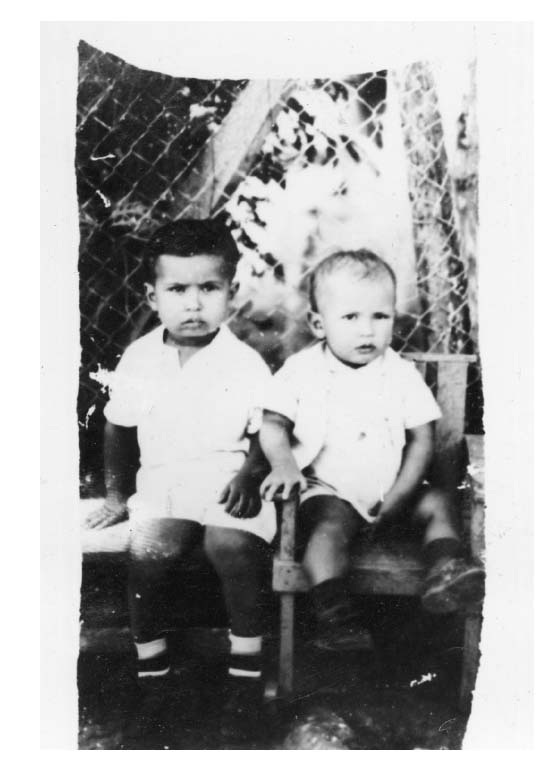
Hugo Chávez and his brother Adán in their
hometown of Sabaneta.
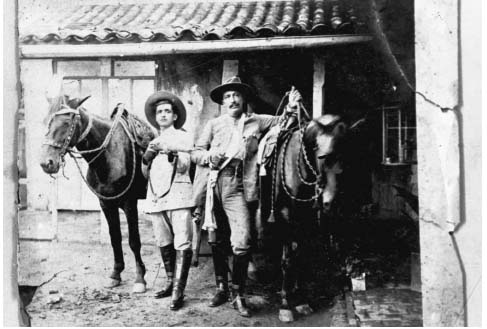
Chávez grew up half believing his greatgrandfather
Pedro Pérez Delgado (on the
right), also known as Maisanta, was a bloodthirsty
outlaw. But a book by a Barinas doctor
and his own investigations later revealed
another depiction of Maisanta, who became
one of his heroes.
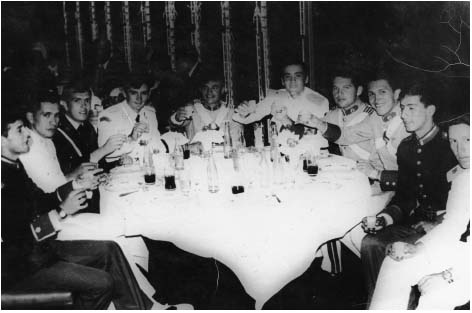
As a cadet in Venezuela's military academy with a growing admiration for Simón Bolívar, Chávez was
chosen for a special trip to Peru in 1974 to mark the 150th anniversary of the battle of Ayacucho. The
sojourn provided his first direct exposure to a social experiment launched by a progressive, although dictatorial,
military man, General Juan Alvarado Velasco. Chávez, third from right, enjoyed a dinner out with
other cadets from around Latin America.
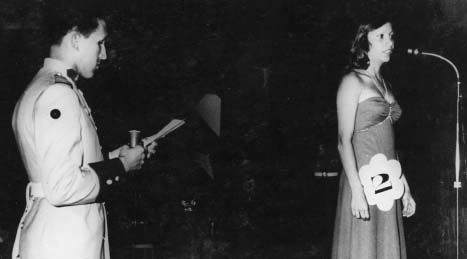
Besides delving into the life of Simón Bolívar, Chávez found time for a plethora of activities as a cadet
and young officer, including serving as master of ceremonies for beauty pageants. This one took place
in 1975 during his final year as a cadet.
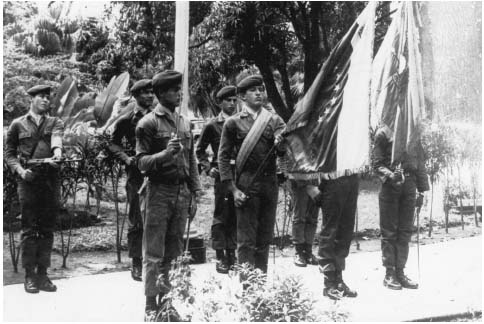
Chávez holds a Venezuelan flag during a ceremony at a plaza in Barinas in 1976.
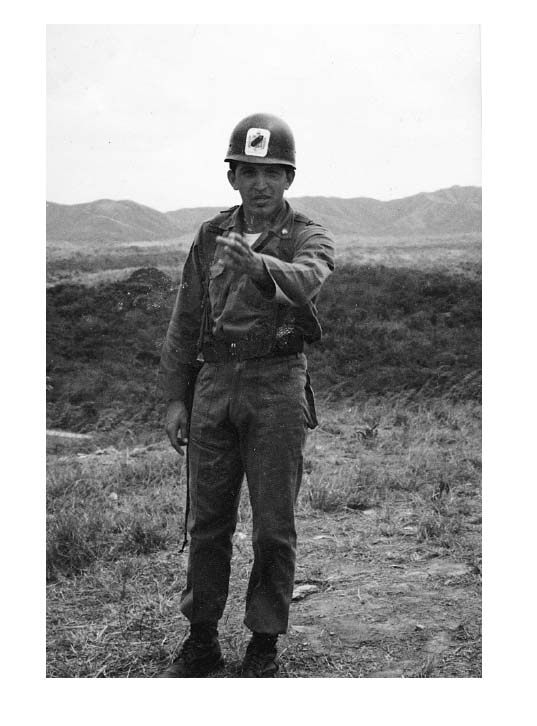
Chávez on a training mission in 1982.
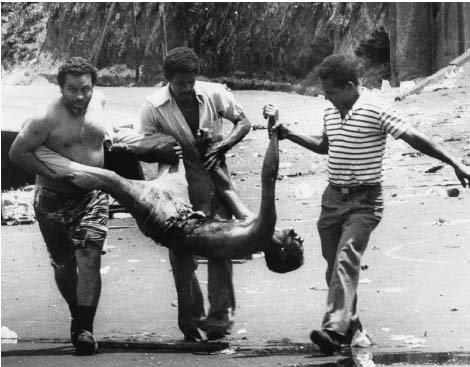
The Caracazo food riots on February 27, 1989,
and subsequent repression by government
troops left more than one thousand people
dead and galvanized Chávez and his Bolivarian
comrades into action. Three years later, they
emerged from secrecy and launched a coup
against the man who ordered the repression,
President Carlos Andrés Pérez. (Francisco
Solorzano)
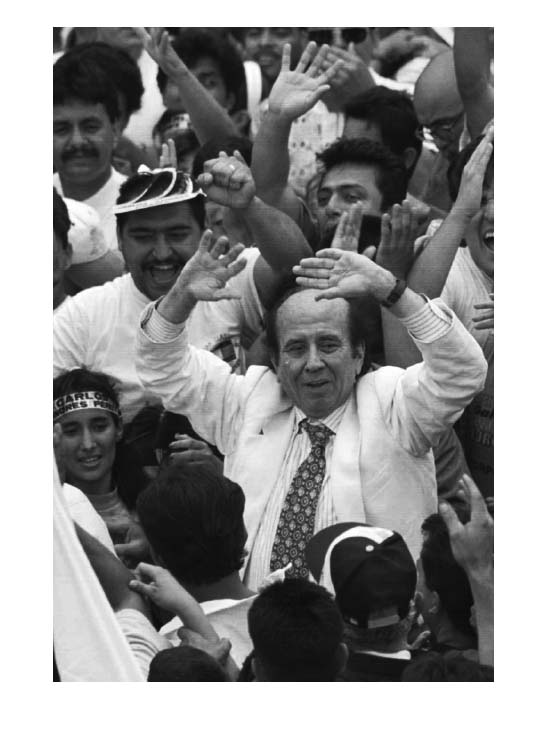
In his heyday President Carlos Andrés Pérez
could make women faint at rallies, but he
became despised after the bloodshed of
the Caracazo, one of the worst massacres
in modern Latin American history. Yet even
after the killings and his impeachment as
president, his home state of Táchira remained
a bastion of support. In 1996, fans mobbed
him. (AP/ Wide World Photos)
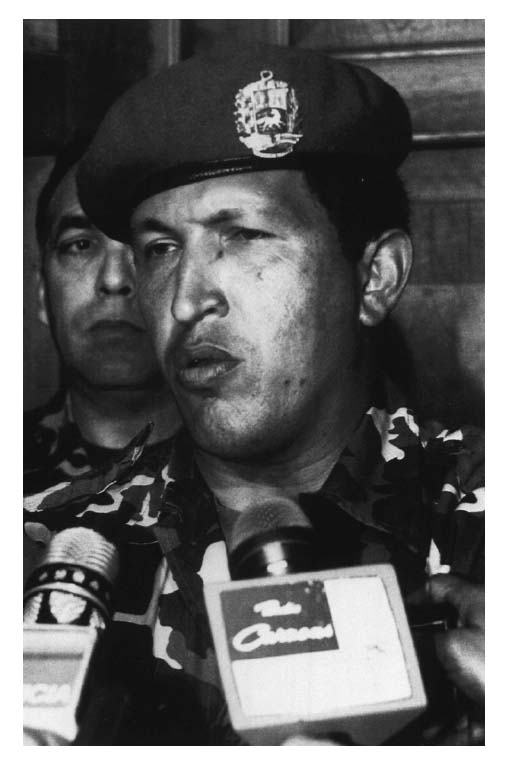
Chávez, then a lieutenant colonel, shocked
the nation by leading a coup on February 4,
1992, and became a hero to millions for trying
to overthrow President Carlos Andrés Pérez.
His famous seventy-two-second speech,
in which he declared live on national television
that the rebels had not achieved their
goals
por ahora,
for now, catapulted him to
stardom. Still, Venezuela's traditional political
class was horrified by the revolt, and foreign
governments condemned it. (AP/Wide
World Photos)
